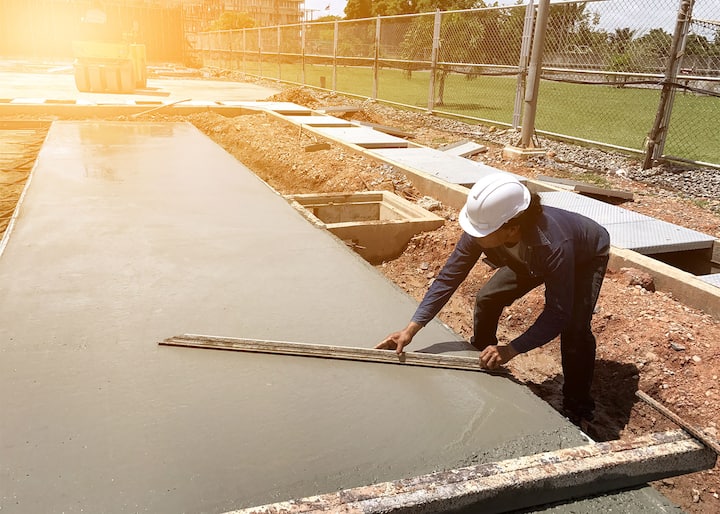
A Deep Dive Into How Soil Quality Impacts Foundations
The foundation of a building is one of the most important elements of its construction. It is responsible for holding the entire structure in place, and any damage to the foundation can have serious consequences. One of the most significant factors that affect the foundation of a building is the type of soil it is built on.
In fact, studies show that up to 50% of all foundation problems are caused by soil-related issues. Different types of soil have different properties that can affect the foundation in various ways.
For example, clay soil has a high degree of water retention, which can cause it to expand and contract depending on the moisture content. Sandy soil, on the other hand, has low water retention and can be prone to erosion. Loamy soil, which is a mixture of clay, sand, and silt, can offer a good balance of properties that make it ideal for building.
Understanding how soil affects your foundation is crucial in designing a building that can stand the test of time and avoid costly repairs.
Understanding the Impact of Soil on Your Foundation
The geological composition of the soil beneath a building’s foundation can significantly influence the structural stability of the edifice over time.
The type of soil can impact the foundation through expansion and contraction due to changes in moisture content, and the ability of soil to support the weight of the building.
For example, in areas with expansive soils, the soil can swell and contract, causing the foundation to shift and crack, leading to costly repairs.
Conversely, in areas with weak soils, the foundation can sink and settle, causing the building to become unstable.
Understanding the impact of soil on the foundation is crucial in building design and construction to ensure the long-term stability and safety of the structure.
Therefore, soil testing and analysis should be conducted before construction to determine the appropriate foundation design and soil mitigation measures needed to prevent any potential damage.
Clay Soil
Clay soil can be likened to a sponge, with its ability to expand and contract significantly depending on the moisture content, ultimately leading to potential foundation settlement and damage.
When clay soil becomes too wet, it absorbs water and swells, exerting pressure on the foundation. Conversely, when it dries out, it contracts and can cause the foundation to settle.
This cycle of expansion and contraction can cause cracks in the foundation, and in extreme cases, can even cause the foundation to shift or sink.
In areas with high clay content, it is essential to take preventative measures to ensure that the foundation is properly supported and protected. This may include measures such as installing a foundation drainage system or using moisture barriers to prevent the soil from absorbing too much water.
Understanding the effects of different soil types on your foundation is crucial in maintaining the structural integrity of your home or building.
Sandy Soil
Sandy soil, with its loose and porous composition, presents unique challenges for foundation stability and requires specific preventative measures to ensure proper support and protection.
The main issue with sandy soil is its lack of cohesion and tendency to shift and settle over time, leading to potential foundation damage. This type of soil has a low load-bearing capacity, meaning it cannot support heavy structures without sinking or shifting.
To prevent these issues, engineers must use specialized foundation techniques such as deep foundation systems, which extend below the unstable soil layer to reach more stable soil. Additionally, the use of geotextiles and soil stabilization methods can help to increase the soil’s strength and stability, reducing the potential for foundation damage.
Understanding the composition and behavior of sandy soil is crucial for ensuring the safety and longevity of any structure built upon it.
Loamy Soil
Loamy soil, with its balanced mixture of sand, silt, and clay, offers a fertile and stable foundation for building due to its ability to retain moisture while still allowing for proper drainage.
This type of soil is considered the most ideal for constructing foundations because it has a moderate permeability rate, which means it can hold water but also drain excess water.
Compared to sandy soil, which is prone to shifting and settling, loamy soil has a higher load-bearing capacity and can support heavier structures.
Additionally, loamy soil contains organic matter, which gives it a rich texture and allows for better nutrient absorption for plants.
It’s important to note that even with its benefits, loamy soil still requires proper soil testing and foundation design to ensure the structure is built on a stable and safe foundation.
Overall, loamy soil provides a strong and reliable foundation for building and is a popular choice for construction projects.
Mitigating Foundation Damage
Mitigating damage to a foundation is a crucial aspect of construction, as it requires careful consideration of factors such as soil moisture content, drainage, and the surrounding environment to ensure the stability and longevity of the structure.
One way to mitigate foundation damage is to implement proper drainage systems, which can help prevent water buildup and erosion that can weaken the soil and compromise the foundation’s integrity.
Additionally, foundation designs should take into account the type of soil present at the construction site and adjust accordingly, such as using reinforced concrete for areas with expansive clay soils.
Monitoring the soil moisture content and implementing measures like foundation watering or installing a moisture barrier can also help mitigate damage caused by soil shrinkage or swelling.
By considering these factors and taking proactive measures, construction professionals can help ensure that foundations are built to last and withstand the effects of different soil types.
Connect with Foundation Repair experts near you
Need help with your next Foundation Repair project? We’re here for you! Call us and we’ll put you in touch with experienced, reliable Foundation Repair experts in Newark, New Jersey.